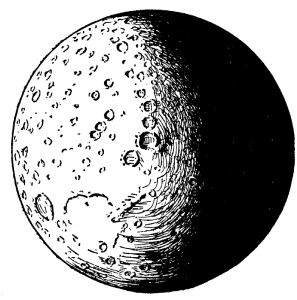Do Christians worship three Gods?
An evangelical author and blogger attempts a sort of primer on “the Trinity.”
An evangelical author and blogger attempts a sort of primer on “the Trinity.”
He tries his hand at a little ad hoc philosophizing about death.
In evangelical Protestant circles – to the highest degree in apologetics, followed by theology and Christian philosophy, it is popular to denounce theological views as “heresy”. For a while now, this has struck me as a little odd, and in this post, I’ll explain why. The concept of heresy arose within Catholicism, and on traditional Catholic assumptions, it makes perfect sense to decry something as… Read More »some thoughts on heresy
Understanding “the plural of majesty” in the Hebrew Bible.
More lessons on how not to do apologetics, from a Master.

I recently stumbled upon a great post by Michael Patton that just about perfectly expresses how I’ve felt about Christian apologists since growing past teenagerhood.
In part:
This is the problem that I have with some apologists (those who defend the faith). Don’t get me wrong, I believe very much in apologetics and also love many apologists. But very rarely do I find a reasonable apologist. Most are very hardened because they are committed first to defending their particular position, not so much to learning.
Read the whole thing. He also has done a similar post recently.
I would add: apologists too often fall into mere rhetorical violence: hyperbole, attacking a straw man, verbal aggression, smug, acid condescension, simply repeating oneself more loudly, insults, poisoning the well, and so on. And this is leaving aside poorly constructed arguments. Sadly, debates between philosophers (one or both of whom may be atheists) are nearly always “cleaner” (more reasonably and respectfully conducted) than your average debate between a Christian apologist and anyone else.
I’m always reminded of what James says:Read More »Patton’s problem with Apologists
Some interesting comments on philosophy and philosophers by Nigel Warburton, one of the two hosts of the best philosophy podcast, in an interview on the occasion of his resigning his academic post. …that’s just the nature of philosophy. It’s always difficult… If you’re not having trouble then you probably don’t really understand what’s going on. Many people seem not to have trouble, but I know… Read More »Nigel Warburton on contemporary philosophers
 Theology blogger / author / golf pro Kermit Zarley asks: Is Jesus Divine Because He Was Worshipped?
Theology blogger / author / golf pro Kermit Zarley asks: Is Jesus Divine Because He Was Worshipped?
He answers in the negative. As usual, he highlights some important scholarship. In part,
When the gospel Evangelists report that someone performed proskuneo toward Jesus, Bible translators invariably reveal their Christological bias by rendering it “worship,” suggesting that that person thought Jesus was “divine” or “God.” But when the Evangelists relate that a person performed proskuneo toward someone other than Jesus, they translate it “bowed down,” “bend the knee,” or “prostrate.” So, they translate it “worship” when done to Jesus, but a physical act when done to someone else.
I agree that it is important that Christians should worship Jesus too, and not only God. The New Testament, in my view, clearly teaches this; it is a consequence of his being raised to God’s right hand. I also agree that this is not at all the sin of idolatry.
Keep in mind that the passages he’s discussing above concern Jesus before his resurrection and exaltation. He is clearly worshiped in the fullest religious sense after. e.g. Philippians 2, Revelation 5, as well as prayed to.
Contrary to Mr. Zarley, I do think it is technically a violation of the command, now made out of date by the one who issued it, to worship only Yahweh (i.e. the Father). I would add that it’s simply not correct to define the sin of idolatry as worshiping anyone other than God.
I don’t think we can make much progress distinguishing kinds of (religious) worship. To say there are kinds of worship is one thing, but to display the differences is another. But we can distinguish indirect from direct worship, as the New Testament does in several places. We worship God (indirect object) by worshiping his Son (direct object).
Here’s another angle. In the NT, the justification given for worshiping Jesus is that this is our obeying the God who vindicated, raised, and exalted Jesus. Now, if we should worship Jesus because he’s fully divine, or because he’s God himself, or because he shares a divine nature with the Father… wouldn’t that be their main reason?
Below the fold, much better music than we usually feature on this blog. Read More »Zarley on “worship” of Jesus in the New Testament
The eastern emperor and the western emperor agreed: there needed to be a new ecumenical council to somehow solve the theological disagreements festering from the controversy over Arius in 324-5.
I think that Dr. Larycia Hawkins did the right thing in making public her theological discussion with her boss at Wheaton College. Here are some brief thoughts on reading it. After affirming that she agrees with Wheaton’s creed, including its very vague (but typical) affirmation of “one sovereign God, eternally existing in three persons,” she engages a challenge by her boss Dr. Stan Jones. (You can read… Read More »some thoughts on the Hawkins-Jones discussion
A response to a response to my paper “When and How in the History of Theology Did the Triune God Replace the Father as the Only True God?”

Last Christmas season I posted in a slightly Grinch-like way about catholic Incarnation theories, and about some Christians’ lack of critical thinking about them.
There’s an interesting human impulse observable here. The best analogy I can think of right now is posters like the one to the left. The ladies love them.
Why? There’s the sex appeal of the dude. And the cute baby. Everyone likes a cute baby.
But there’s something else, something affecting about a big, strong, tough manly man, stooping to gently cradle a teeny, vulnerable baby. He’s made himself so vulnerable. Of course, that adds to the “sexy” part. My point is, the affecting nature of the man’s condescension is a distinct element of the appeal.
Now imagine that God, big strong God, becomes an ignorant, weak, dependent little baby. There’s a similar, recognizable emotional tug there. What an amazing idea! Of course, it may be amazing in part because it’s contradictory. But I’ll not argue that here.
Instead, a bit of cross-cultural comparison. Christians aren’t the only ones who go in for the idea of a god who comes down from his mighty position, to be a cute, puny little baby.
The Ramayana is an epic poem, and a sort of scripture in Hinduism. Parts of it go back perhaps to the 400s BCE, though it comes in many versions, some of which are from the high middle ages. The clip below is from a wildly popular Indian television series from 1986 called Ramayan. If you’re interested in Hinduism, I recommend it, but it’s a real time commitment to watch the whole thing. I’ve edited some bits of it, to include the more theological parts, and to get it down to youtube length. It’s here, Ram or Rama, is supposed to be an avatar of the god Vishnu.
My point is notRead More »God the baby – Rama / Ram, avatar of Vishnu

Not possible. But why? (image credit)
Here are some rough-draft thoughts on another line of thinking associated with social trinitarian theories.
God is perfect. Arguably, an absolutely perfect being could not fail to be “well off” – in classical terminology, a perfect being must be happy, must be in a “blessed” condition. Part of perfection is independence. One kind of independence is the kind which comes up when discussing ontological or cosmological arguments for God’s existence – the idea of aseity, or existing but not because of anything else. But here’s another kind of independence or self-sufficiency: not requiring any thing (i.e. any fact not entailed by your existence) to be well off, to have a good life. Perhaps we could call it the divine property of security, or independent or self-sufficient happiness.
Is God as well off as he could possibly be? Arguably not,Read More »Reflections on the Impossibility of a truly lonely Christian God (Dale)
God can’t be “perfect in love” unless he is multipersonal?
Dr. Bob Cargill of the University of Iowa reviews The Lost Gospel by Simcha Jacobovici and Barrie Wilson. In his view, it’s a stink-bomb of a Christmas present. In part (emphases added) Just don’t bother. Were it a Dan Brown-esque novel, positing a speculative interpretation about the relationship between Jesus and Mary Magdalene utilizing a fanciful allegorical interpretation of a document written six centuries after Jesus… Read More »The Lost Gospel – Not Lost, and Not a Gospel!
Saith the late Christian sage Dallas Willard: The Kingdom Among Us is simply God himself and the spiritual realm of beings over which his will perfectly presides – “as it is in the heavens.” That kingdom is to be sharply contrasted with the kingdom of man: the realm of human life, that tiny part of visible reality where the human will for a time has… Read More »Jesus: Not a Cheerleader
When a human suffers, we can think of how at least some suffering may be good for him or her. Perhaps suffering is the best way to develop virtues like perseverance and compassion. But what about animals?
Following up on the previous post – the word “trinitarian” may be an adjective or a noun. The Oxford English Dictionary lists four adjective meanings: (here’s my editing of relevant parts of their entry, emphasis added) 2. Theol. Relating to the Trinity; holding the doctrine of the Trinity (opp. to Unitarian). In early use, Trinitarian heretic, one holding heretical views as to the Trinity: 1656… Read More »Heretical “trinitarians” – evolution of a word
The Greek trias, translatable as “triad” or (I think misleadingly) “Trinity,” had been used a few decades before. But the first known use of the Latin trinitas is by Tertullian, and we assume that he coined this Latin term. Actually, we have to talk of earliest uses, because it appears in two works, Against Praxeas and On Modesty, which are probably late works, and we don’t really know… Read More »“trinitas” in Tertullian’s On Modesty (De Pudicitia)